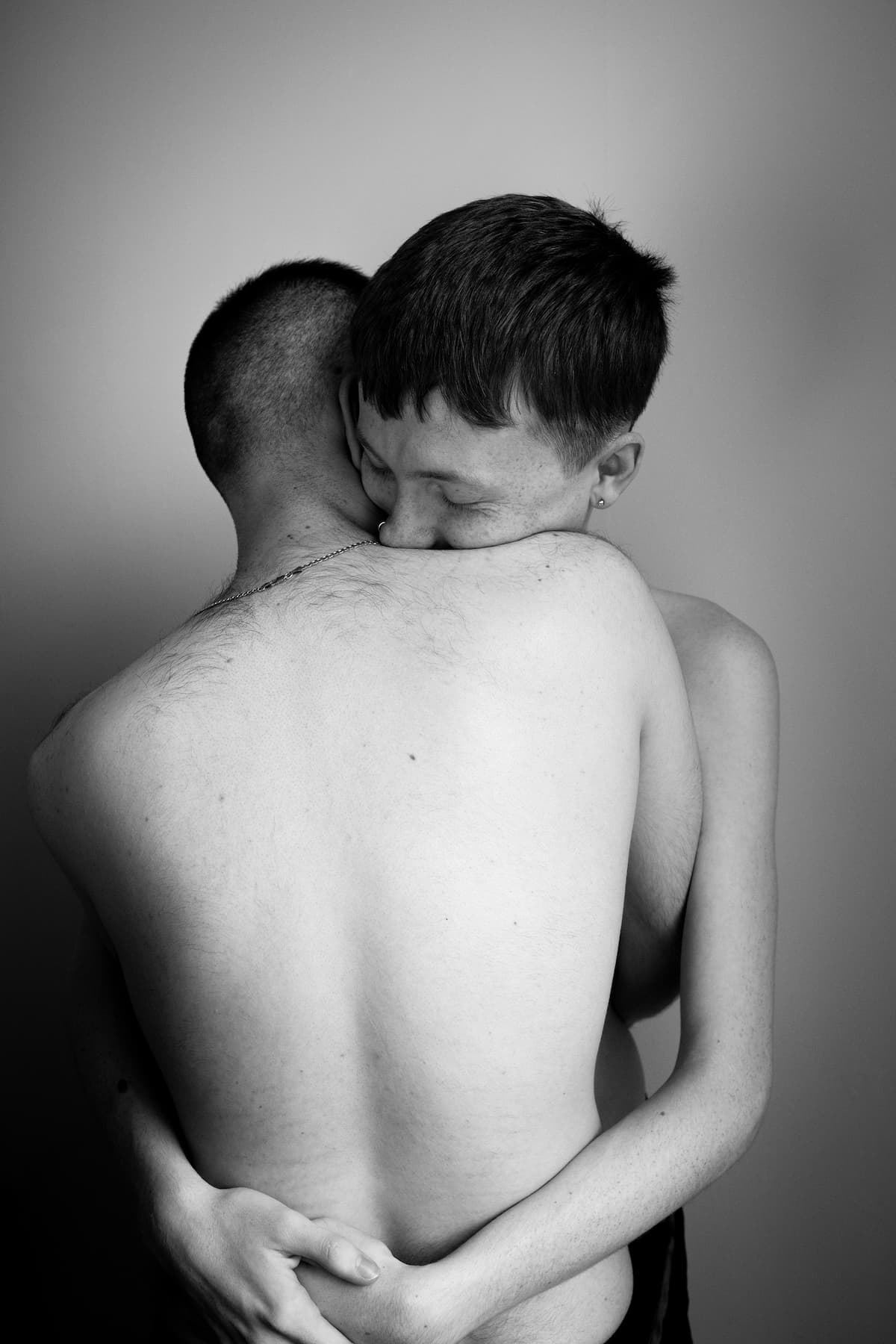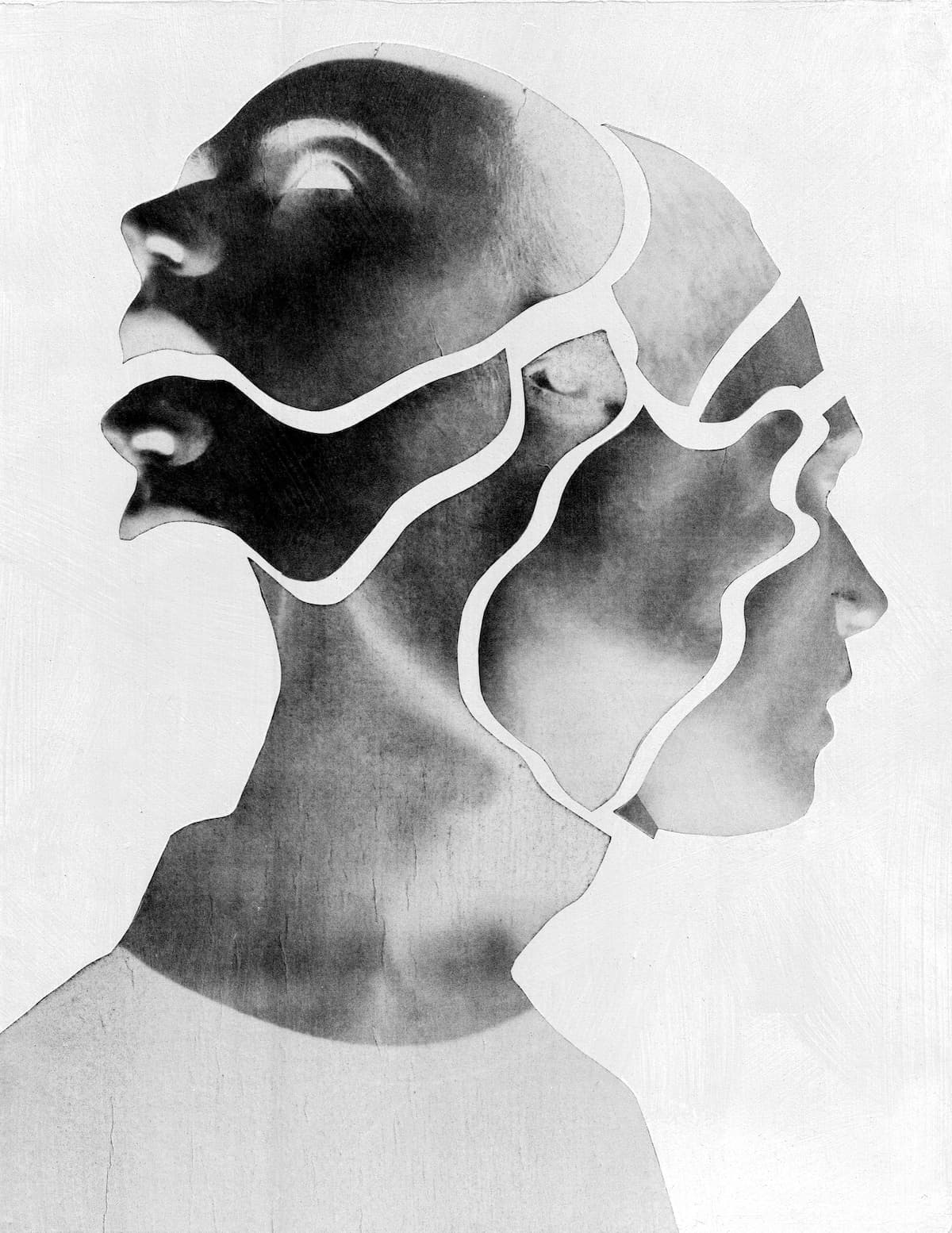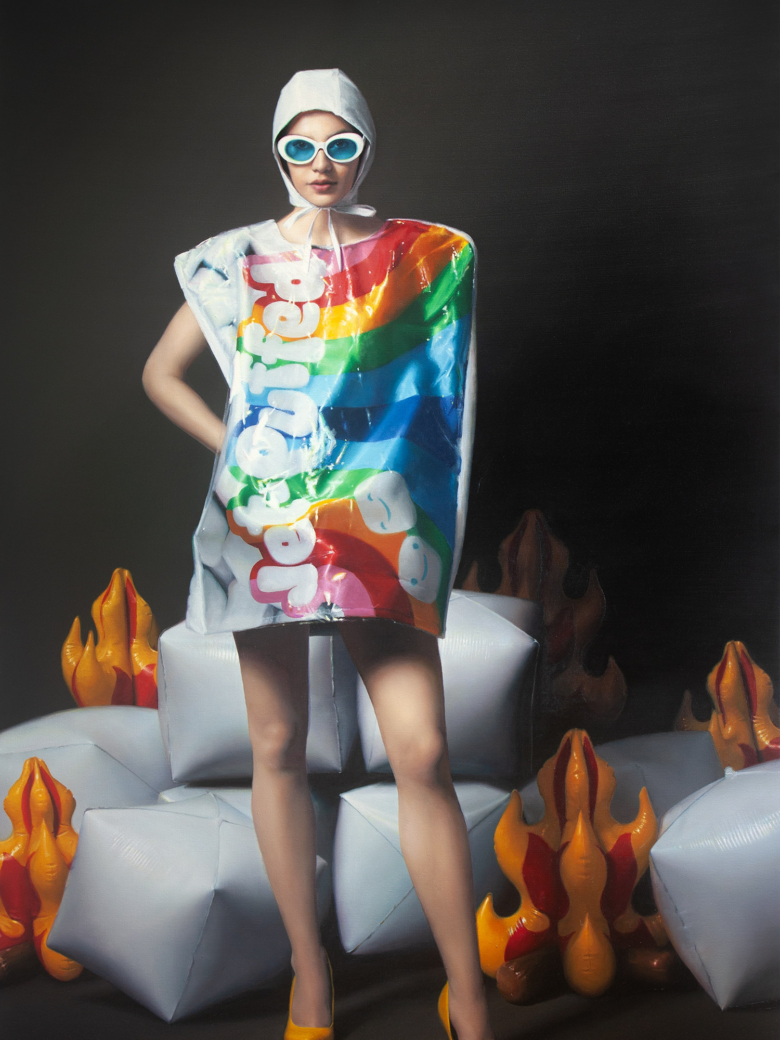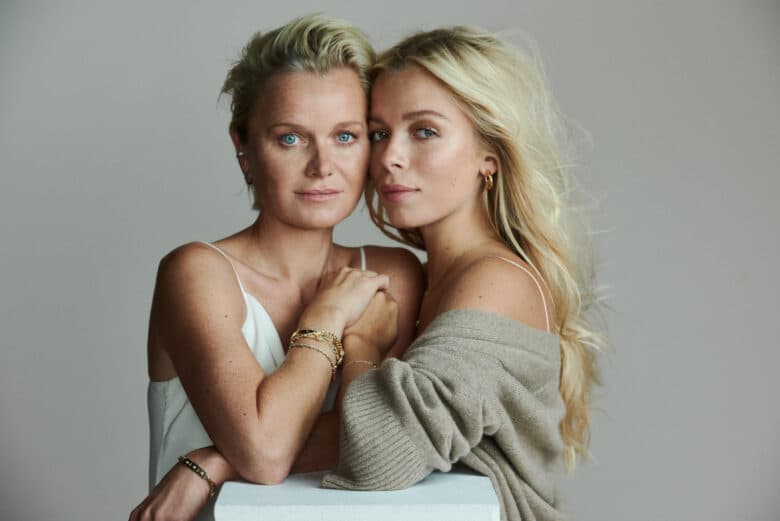Darklight Can Take All Our Money
Born during the pandemic, Darklight’s ethos is to support artists and to bring inspiring art to the walls of your home. Helping you invest in trusted talent and collectable works to create uplifting, visually stimulating spaces, the online platform brings together affordable prints from artists such as Jess Cochrane, Jesse Draxler, Sophie Mayanne and Rankin.
Inspired by a new generation of art collectors who shop for their next piece while scrolling through Instagram, Darklight has made accessibility its M.O. But the Darklight mission doesn’t stop there. With a percentage of all sales going to mental health charity YoungMinds, the platform wants to push forward conversations around art and emotional wellbeing.
Below, we speak to co-founders Sarah Williams and Mimi Gray about their lightbulb moment in an Amsterdam bar and why photography is more important than ever in 2020.
Introduce Darklight for our readers at home.
Sarah Williams and Mimi Gray: Darklight is an online space selling affordable small edition fine art prints. Our artists vary dramatically in practice, but all use photography as a medium in some form. As well as being an online gallery of sorts, Darklight also features stories via our editorial platform.
What was the lightbulb moment behind Darklight?
SW and MG: We were sitting having a couple of beers together in Amsterdam, talking about artists whose work we would love to own. We felt like there was this void between marketplaces selling decorative art prints and galleries selling very expensive fine art. We wanted to create accessible, reasonably priced editions that were still small print runs. We also wanted to prove that affordable art can still be meaningful and have impact.
How is the project going to change the industry?
SW and MG: We want to have a hand in shaping the conversation around our industry; giving space for artists to share their stories and talk openly about art and mental health, which is something we are both pretty vocal about. We also want to remain small and make sure we can give each artist what they need: it’s important to us that we never become an online “supermarket” for art. A percentage of every sale will also support YoungMinds, who are leading the fight for children and young people’s mental health in the UK.

As cofounders, what’s your working relationship like?
MG: Art for me, for both of us I think, has been the only constant in life. It’s the only subject I ever truly cared about. When S and I met working in an ad agency, we somehow managed to make that all about art too! We tore down all the scamps and pitch work from the biggest wall we could find, painted it black and started an artist-in-residence programme that ran for five years until I left last year to move to Amsterdam. We had a great time, ditching client work for curating exhibitions alongside artists like Lauren Baker, Jess Cochrane and Adelaide Damoah.
SW: When we worked together in advertising, people used to call us the light one and the dark one. Duality is in our DNA; we have always self-described as yin and yang, but we share very similar values when it comes to art and visuals.
And who are some of the artists represented by your platform?
SW: Mimi has worked with Jess Cochrane as a curator and agent over the past few years so she was really a no-brainer. Obsessed with her work and her originality. Jesse Draxler has been an art-crush of both of ours for years too, and we have kept in touch over the years via. Instagram. He is the king of darkness. Sophie Mayanne just moves us with her honest, raw portraits. She’s the embodiment of finding light in the dark, beauty in scars. Her self-documentation is incredible to follow.
Love Sophie’s work! Who do you consider your audience to be?
SW and MG: Galleries and art fairs can be incredibly intimidating spaces for people, us included. There are a huge number of art enthusiasts who wouldn’t have the confidence, never-mind the money, to walk into a Mayfair gallery. Our audience buys art online and through Instagram. They have some disposable income, but only want to spend money on work they really love and adore. Maybe a piece that has a story they connect with; they see themselves in a Sophie Mayanne, or an artist like Jesse speaks to their dark side. They’re conscious of the environment and of where their money goes. Half of them are also female! The most powerful, most over-looked collectors. As a female-owned business, this is something we feel strongly about changing.

It seems like democratising art is quite core to what you do, right?
MG: Totally. Our vision is to change the way people buy and talk about art. By taking it out of elitist spaces and putting it online, using open, friendly language that isn’t condescending or wanky, and by selling affordable work whilst still supporting our artists. We believe that art makes you feel good, so our mission is simple: to get more art into people’s homes; to create more inspiring spaces to live in.
How do you think the status of photography has changed over 2020?
SW: I think photographers and artists generally have been super creative, faced with strict limitations. They’ve had to become very resourceful, turning their lens on what’s around them. In view of everything that’s happened in 2020 so far, photography has become a life-line.
MG: The Black Lives Matter movement has rightfully called into question the role of the photographer and the integrity of commissioners. People are being called out left, right, and centre and I think it’s a good thing. We need change in this industry, fast. Like, yesterday.
Last question now! What are your long-term hopes for the project?
MG: Darklight was born out of a love for art, in a time when we urgently need democratisation in the art world. But it’s also the culmination of two years of reading, writing and research into the link between art and mental health. We hope to be able to exist long-term, to be a part of real change and to harness the power of art as a force for improving mental health, especially in young people.
SW: I absolutely agree with that. Hopefully, there will be opportunities for us to collaborate with YoungMinds on real-life projects too. It would be an amazing way to reach more young people with genuine human connection too, rather than just online.
Like what you’ve seen? Head to Darklight here.
Buy a print of Rankin’s “Seeds of Change” and support Akil Benjamin’s Mentor Black Business initiative here.


